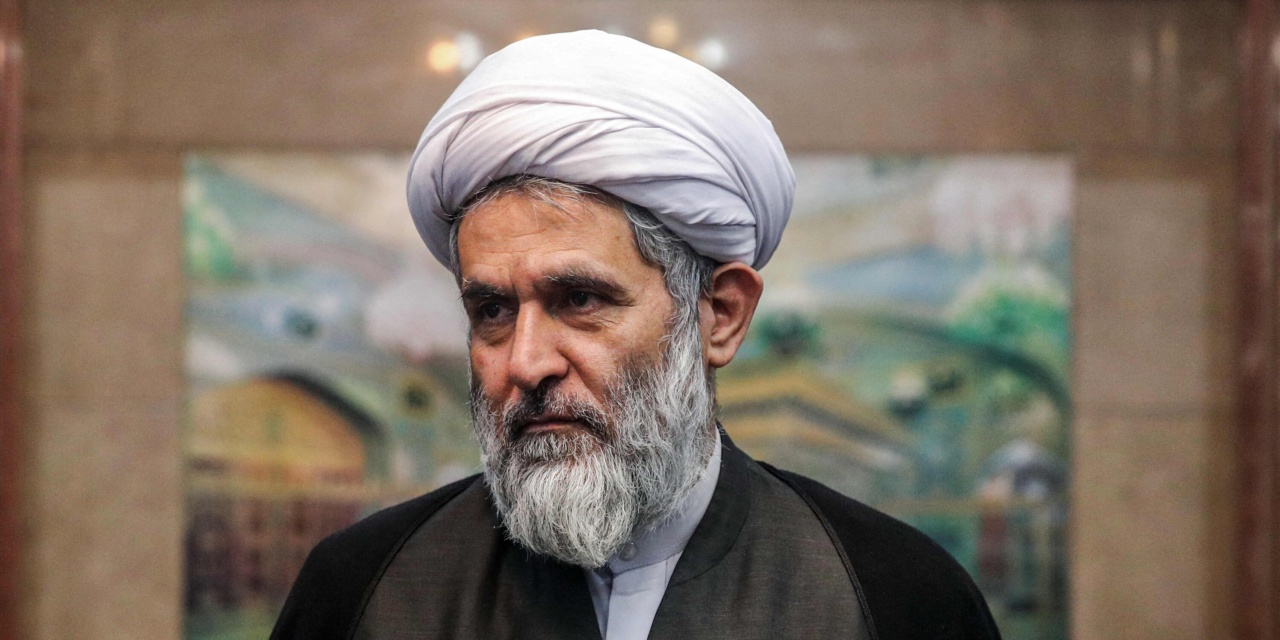Amid a series of Israeli attacks and assassinations, Iran has shaken up its intelligence services, with the dismissal of a powerful cleric and the reported arrest of a general on charges of espionage.
Hossein Taeb , the one and only chief of the Revolutionary Guards’ Intelligence Division since it was established in 2009, was removed. Iranian outlets said he is now a special assistant to Guards commander Maj. Gen. Hossein Salami, instead of being named a special aide to the Supreme Leader.
A senior Guards commander, Brig. Gen. Ali Nasiri, was secretly detained on allegations of spying for Israel, according to “a person with close ties to top officials in the Revolutionary Guards and another with knowledge of the arrest”. They and other Iranian officials quoted in this article requested anonymity because they were not authorized to speak on the record about internal discussions.
In recent months, Israel has stepped up its sabotage operations. It has killed senior personnel in the Revolutionary Guards and alleged slain scientists and engineers in Iran’s nuclear program. Other personnel have died in suspicious circumstances.
The killings follow Israeli-organized explosions in nuclear facilities, including the main complex at Natanz, and the assassination of the head of Iran’s nuclear program, Mohsen Fakhrizadeh.
Meanwhile, Iranian operations have had setbacks, notably over efforts to abduct and possibly kill foreign nationals. Last week Turkish authorities announced that they had broken up a cell, of five Iranians and three Turkish collaborators, planning to kidnap or assassinate Israelis in Istanbul.
See also Turkish Officials: We Foiled Iran Intelligence Plot to Attack and Kidnap Israelis>
Israeli intelligence officials said the failure in Turkey, with the embarrassment of exposure, sealed Taeb’s fate as head of Guards intelligence.
An Iranian official explained that the detention of Gen. Nasiri follows arrests in April of several dozen employees of the Defense Ministry’s missile development over leaksof classified military information to Israel. The material includes design blueprints of missiles.
Iranian facilities have also suffered a series of cyber-attacks. On Monday, three Iranian steel factories were affected, with one halting its production line. The group that claimed responsibility, Gonjeshke Darande, also says it disabled gas stations across Iran last November — an attack which US officials said was connected to Israel.
The Fall of The Supreme Leader’s Ally
Taeb’s removal is particularly notable because he was a long-time ally of the Supreme Leader.
The cleric was appointed to lead the Guards’ Intelligence Division when it was established amid the mass protests over the disputed 2009 Presidential elections.
Taeb, who had led the paramilitary Basij organization, was brutal in his suppression of the demonstrations with mass detentions and the kidnap of dissidents in other countries. The leaders of the Green Movement — Mir Hossein Mousavi, the most prominent candidate in the 2009 election; his wife, activist, academic, and artist Zahra Rahnavard; and former Parliament Speaker Mehdi Karroubi — were placed in February 2011 under house arrest, where they remain today. Civil society groups were broken up.
But the Israeli operations eroded his position. Taeb requested another year in his post to sort out the situation, but was denied.
Gen. Nasiri was a senior commander in the Guards’ Protection of Information Unit. He was arrested in June, a step which led some to call for the departure of Taeb.
Taeb was replaced by Gen. Mohammad Kazemi, the head of the Protection of Information Unit.
On Saturday, authorities replaced the head of the Revolutionary Guards unit that provides security for the Supreme Leader and his family.


A second general was dismissed….
“The powerful intelligence arm of Iran’s Islamic Revolutionary Guards Corps (IRGC), the elite branch of the armed forces, is undergoing a significant housecleaning. Ebrahim Jabbari, the head of the IRGC unit in charge of protecting Supreme Leader Ayatollah Ali Khamenei, was replaced on June 27. Days earlier, the IRGC’s longtime intelligence chief, hard-line cleric Hossein Taeb, was removed. The surprise moves are the biggest reshuffle in the feared intelligence branch of the IRGC for years.”
https://www.rferl.org/a/iran-farda-briefing-esfandiari-irgc/31921038.html
The commander pleads the authorities to stop pissing in their pants
https://www.radiofarda.com/a/hossein-salami-israeli-pressure-security-iran/31922973.html